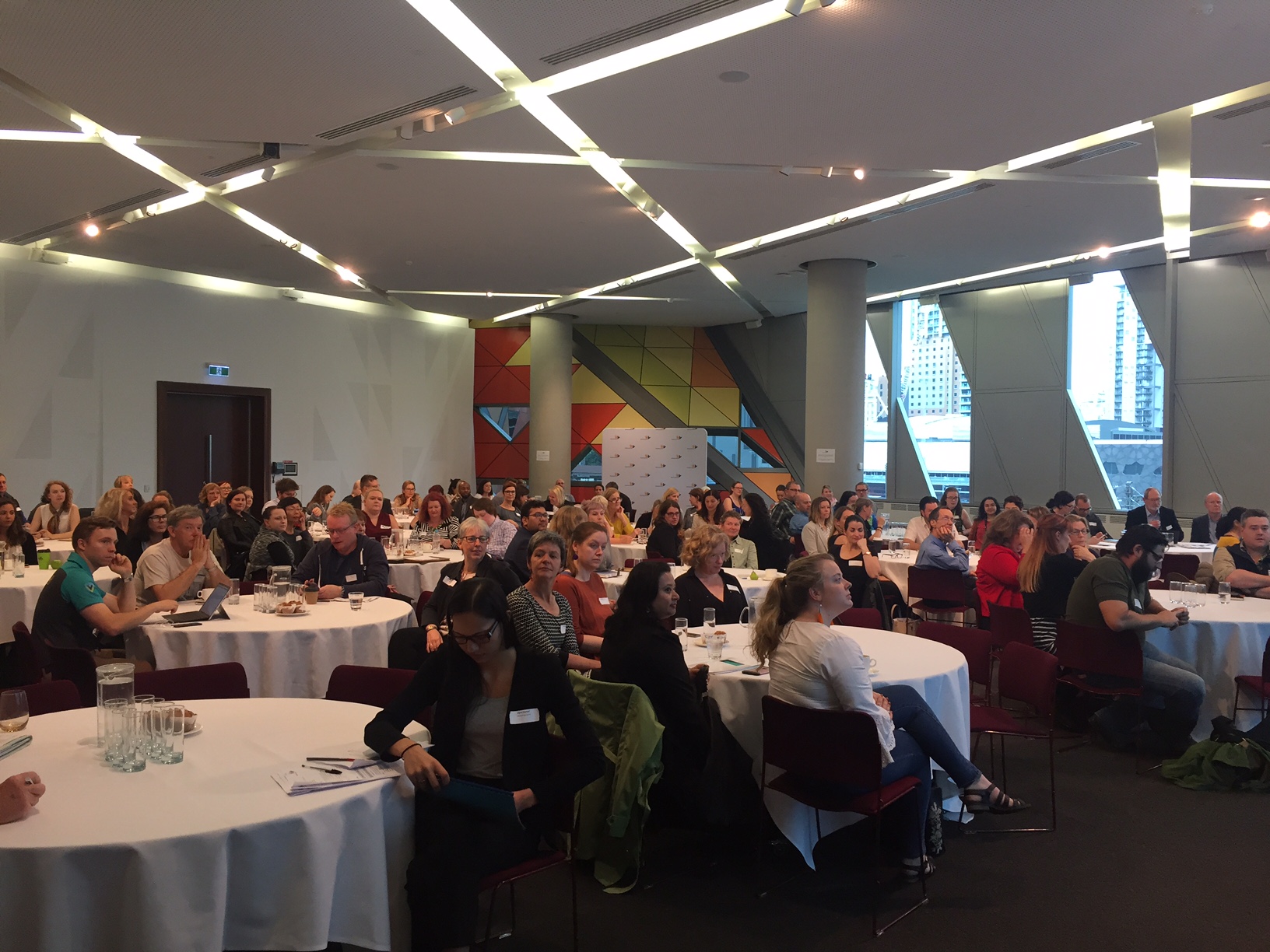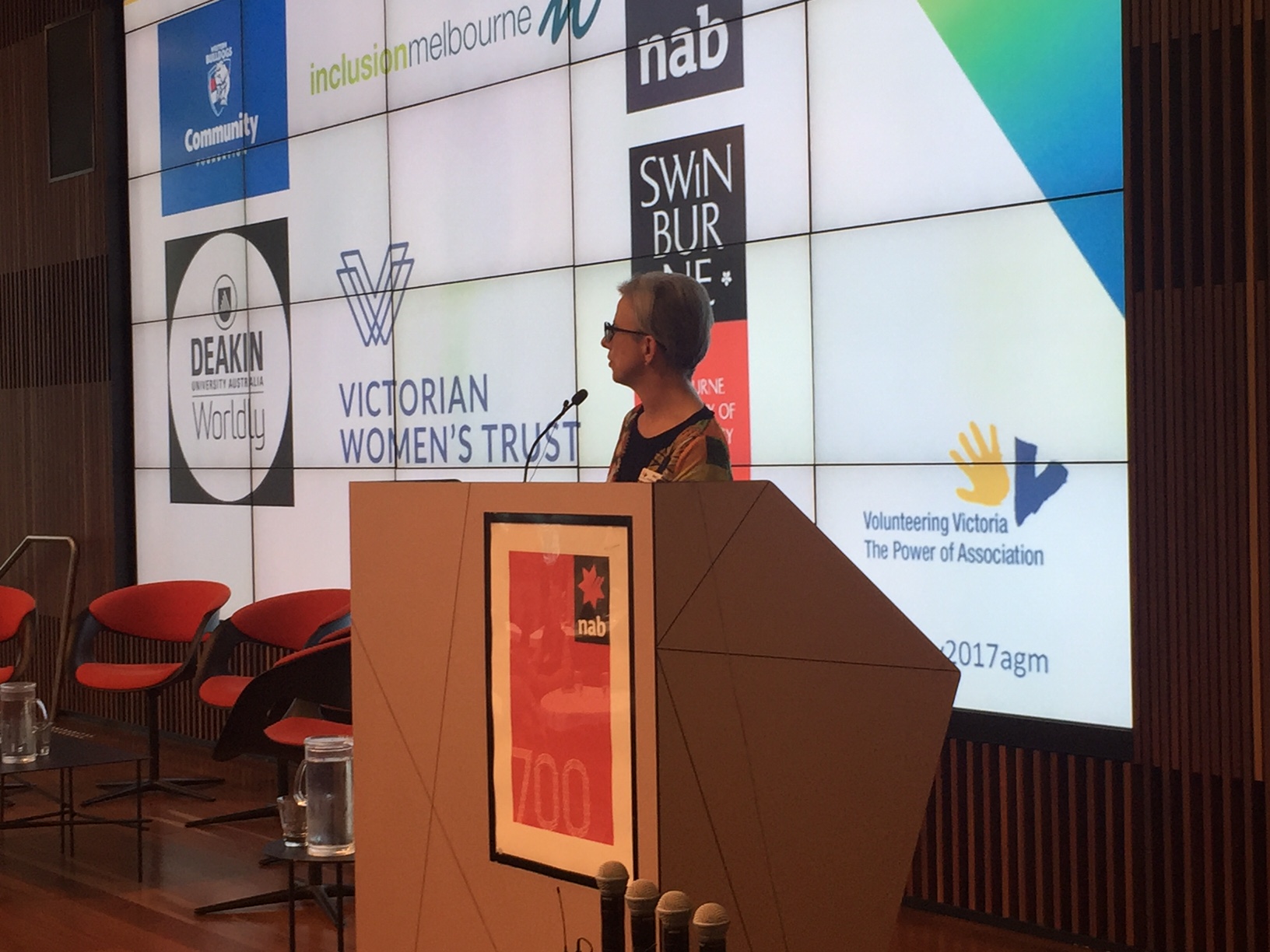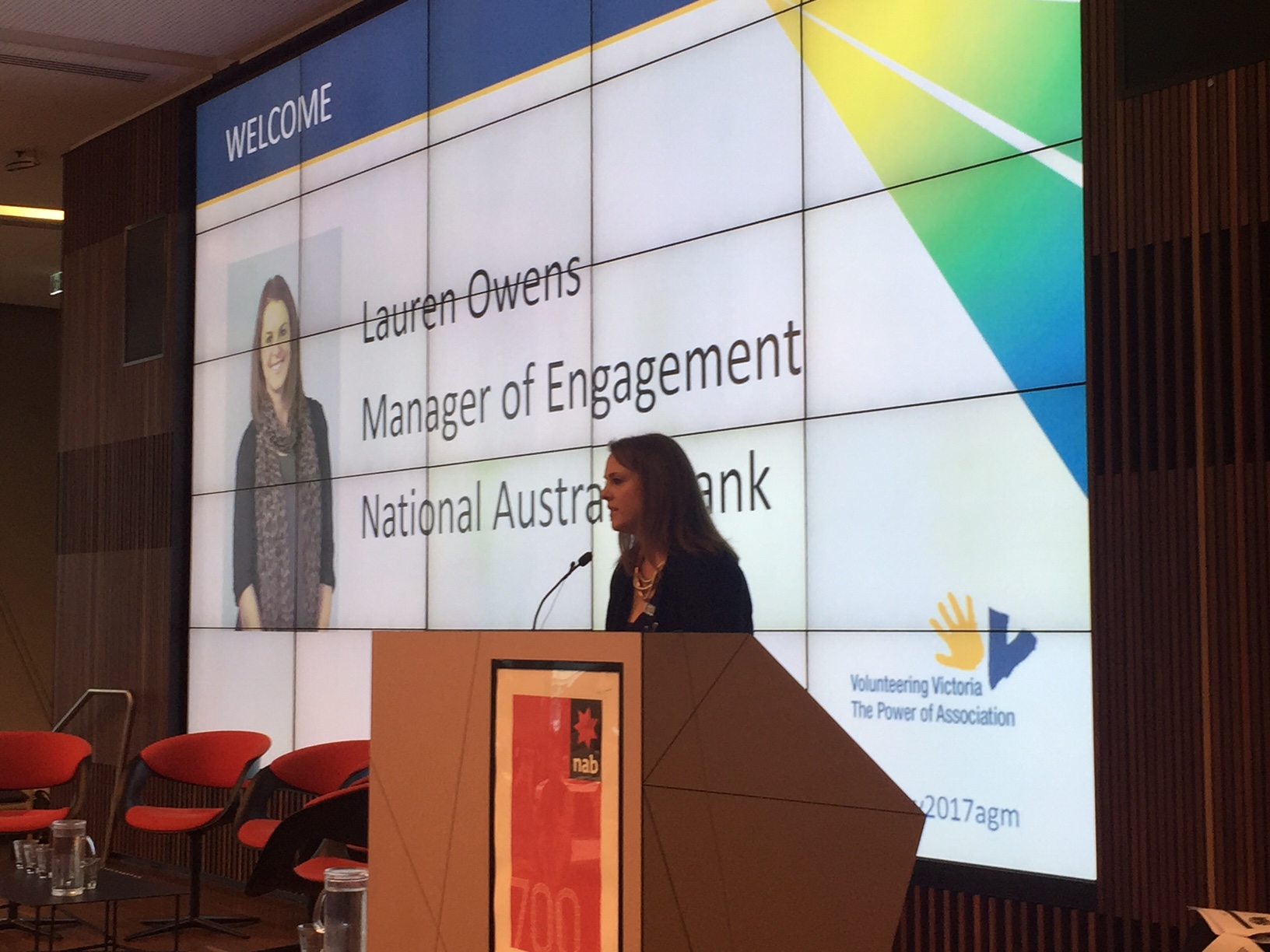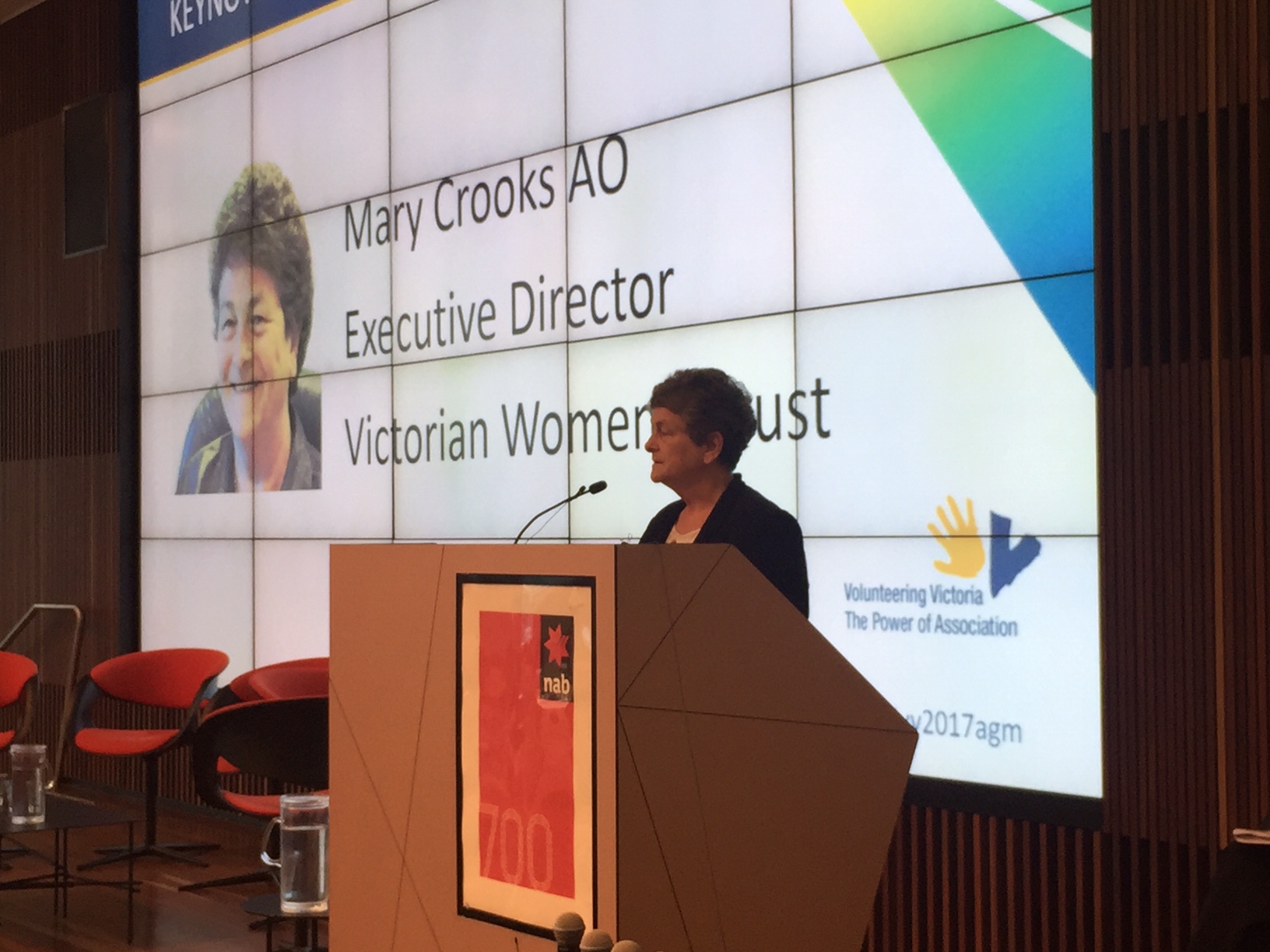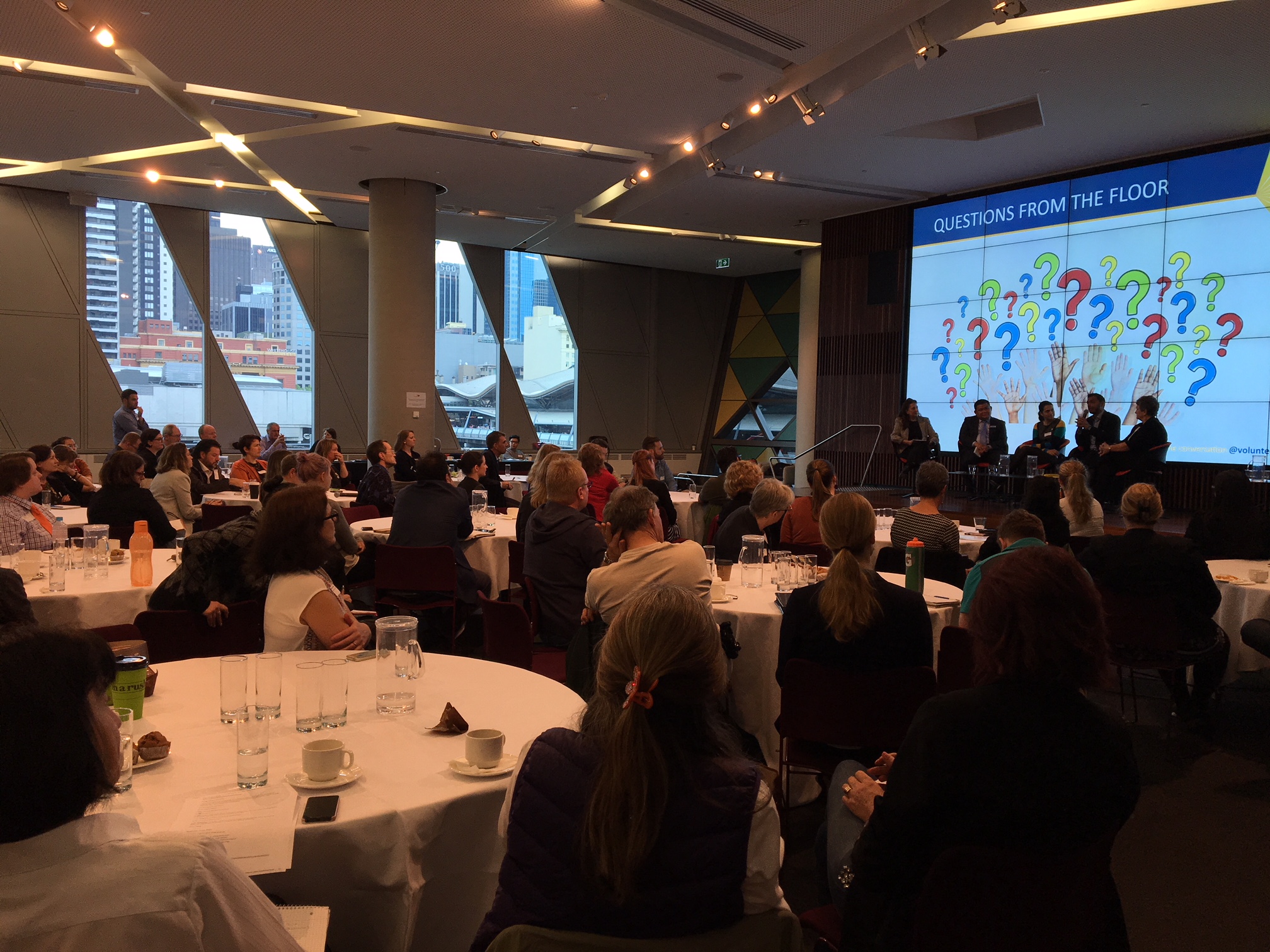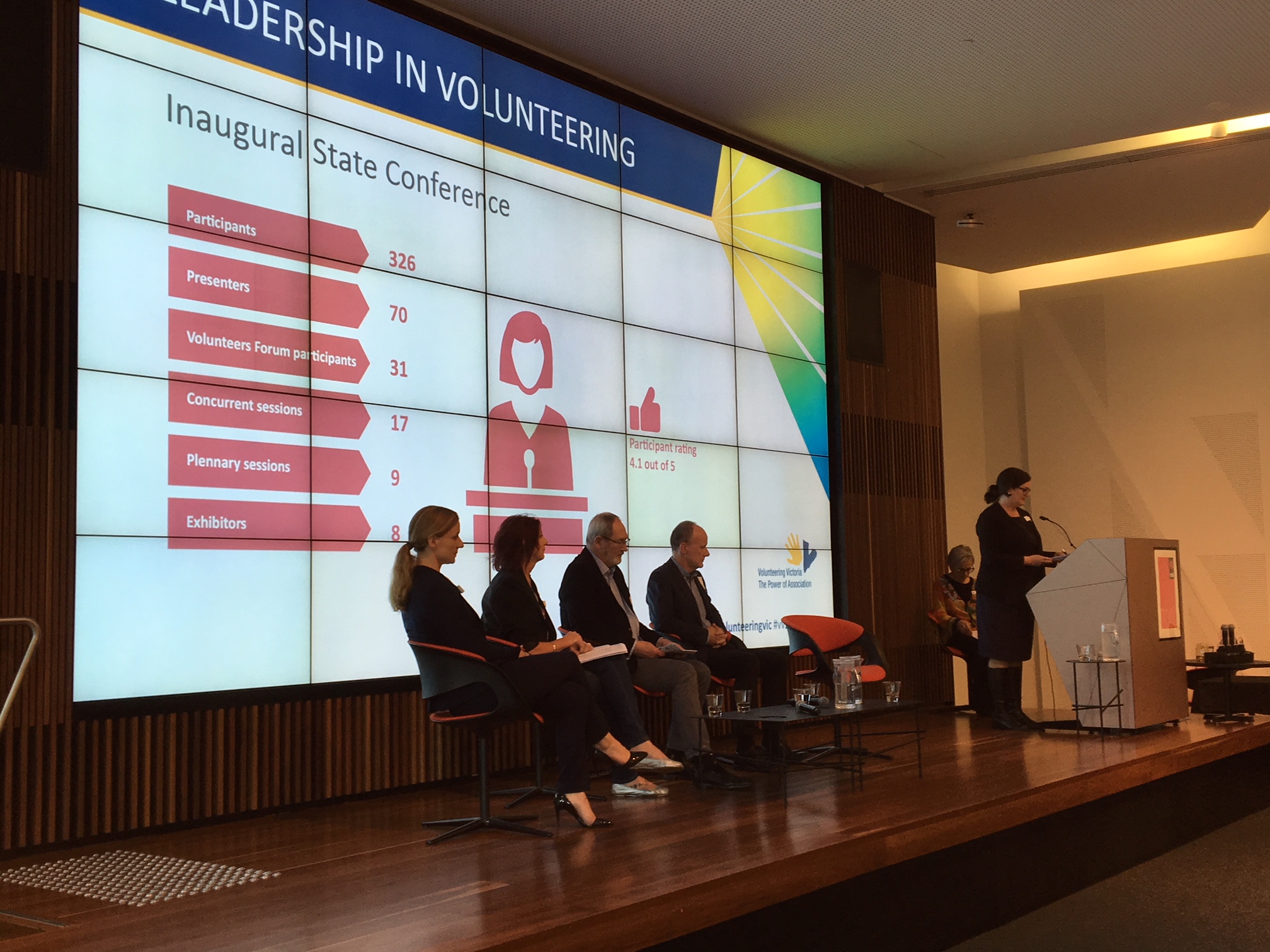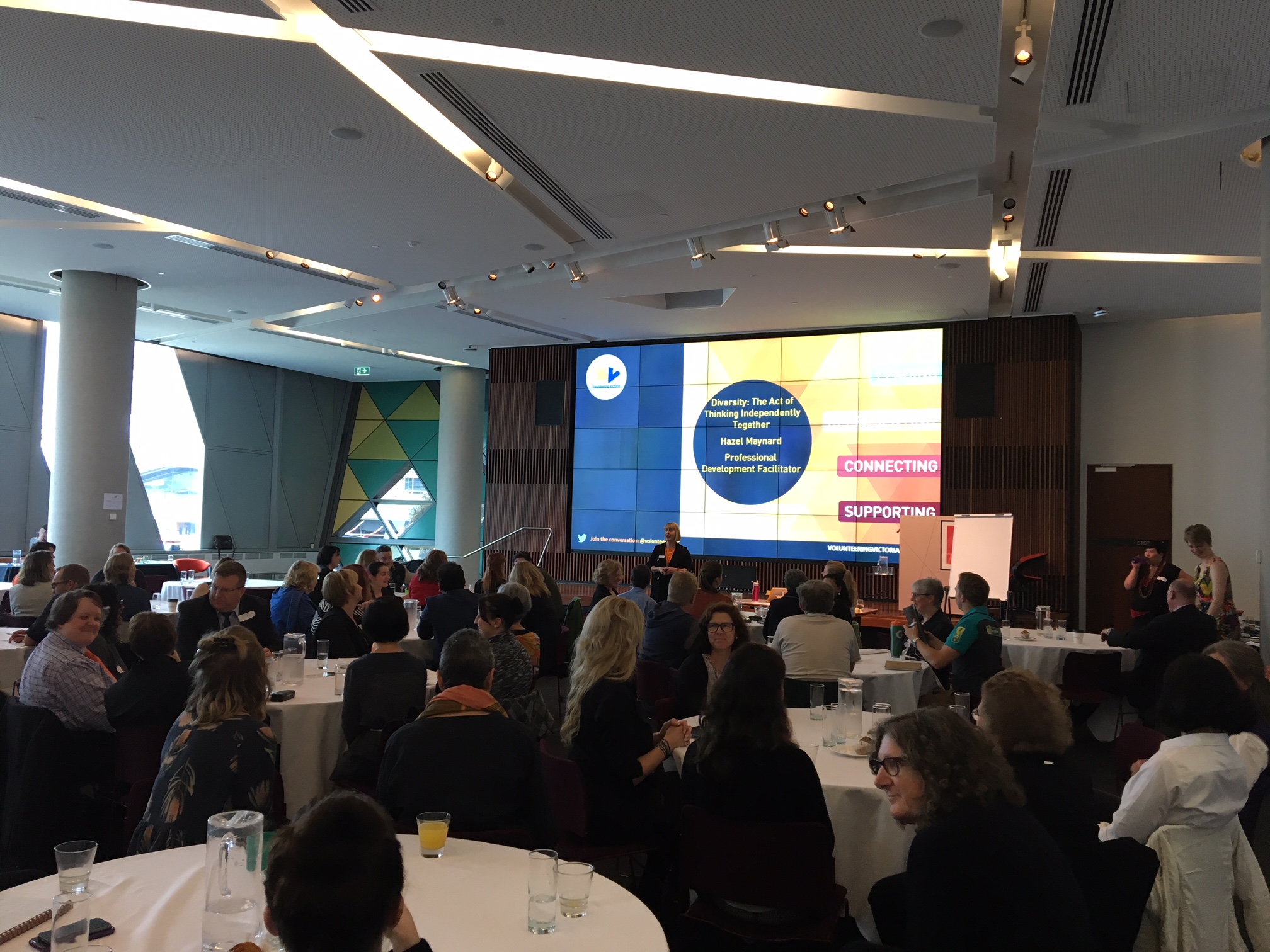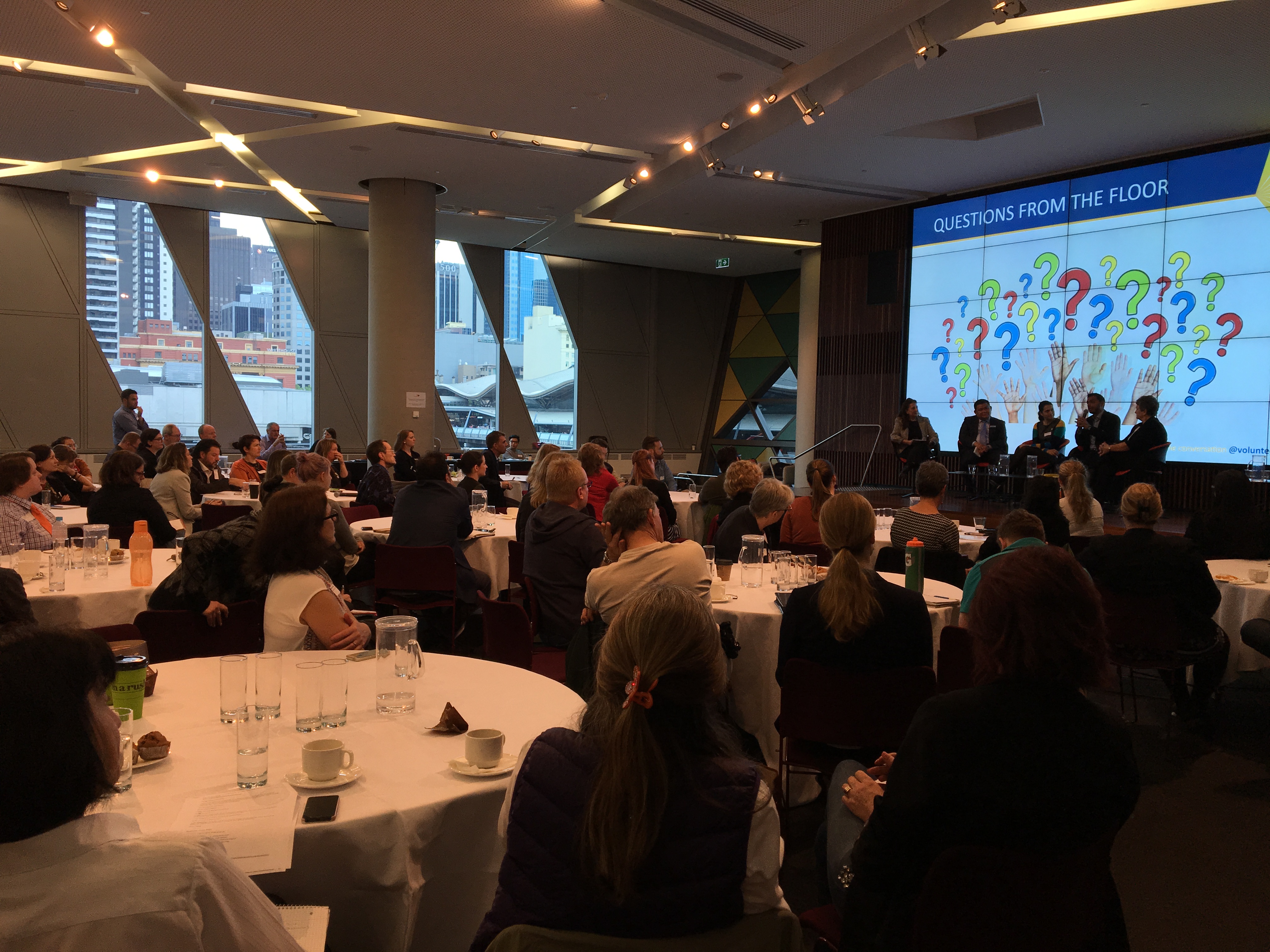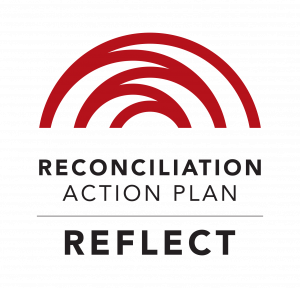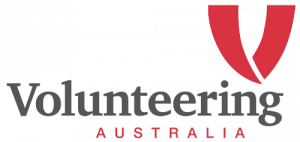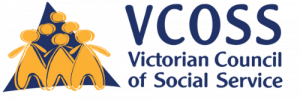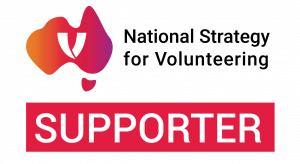Thank you for joining us at the Volunteering Victoria 2017 Annual General Meeting, Forum and Workshop. With over 120 attendees, it was our largest ever AGM! We hope you enjoyed the day as much as we did.
The theme for the forum If you don’t have a seat at the table, bring your own chair, was a timely reminder for us to stop and consider the importance of having diversity in our volunteer programs. Over 28 percent of the Victorian population are born overseas and over 26 percent speak a language other than English at home. Subsequently, the need to have greater cultural diversity in our volunteer workforce is critical if we want to be representative of the communities we work with. In addition, the implications of the NDIS on the volunteering sector; the value of volunteering in the form of social inclusion, pathways to support career transition and or gain employment and the correlation between giving and higher rates of health and well-being, all support the notion that it is essential to have inclusive practices that embrace diversity.
Our keynote speaker Mary Crooks AO, Victorian Women’s Trust, set the scene for the day by reminding us of the definition of volunteering in Australia – ‘time willingly given for the common good and without financial gain’. Common good, as Mary explained, is underpinned by respect for the dignity and worth of every person, not just some. We cannot talk about diversity by gender, sexuality, ethnicity, disability, age or anything else without talking about the common good. Active volunteering continues to play an important role in fostering, nurturing, maintaining and re-asserting this value.
Teresa Capetola from Deakin University, facilitated an informative and robust panel discussion where our panelists: Kashif Bouns (Western Bulldogs Community Foundation), Bwe Thay (Swinburne Univeristy of Technology), Oranoos Khaligh (Inclusion Melbourne), and Mary Crooks AO, Victorian Women’s Trust, shared their thoughts on the importance of diversity and provided examples of successful strategies for inclusiveness. Shared by all panelists was the belief that strong leadership commitment is critical to success along with reflecting on our own capacity to empower those around us. By being open to checking our own assumptions, sharing stories, facilitating learning opportunities and convening consultation forums, we all have an opportunity to be leaders in our communities and organisations as we work towards building inclusivity.
The afternoon workshop Diversity: the act of thinking independently together, provided an opportunity for participants to start thinking about and discussing practical measures that can be taken to ensure their volunteer programs have inclusive practices. Facilitated by Volunteering Victoria’s Professional Development Facilitator – Hazel Maynard, the workshop highlighted three key steps that organisations can take including:
- Reviewing organisational culture
- Reviewing organisational procedures
- Planning and developing diversity and inclusion programs


